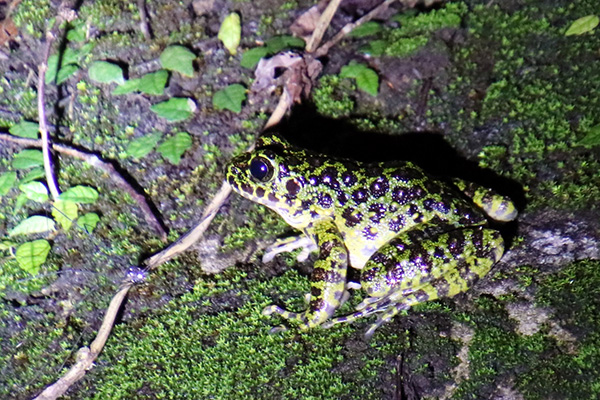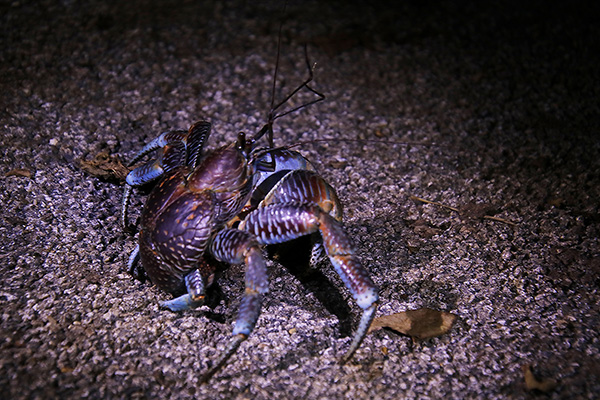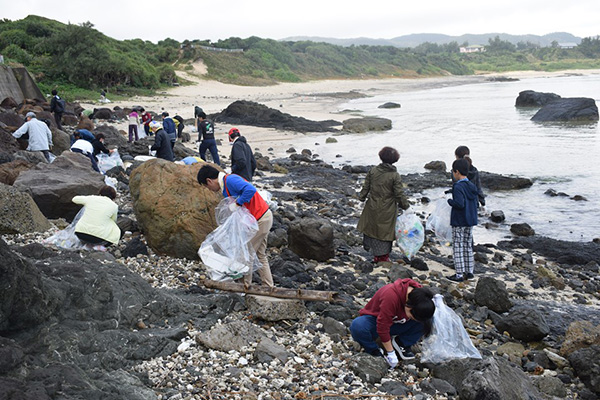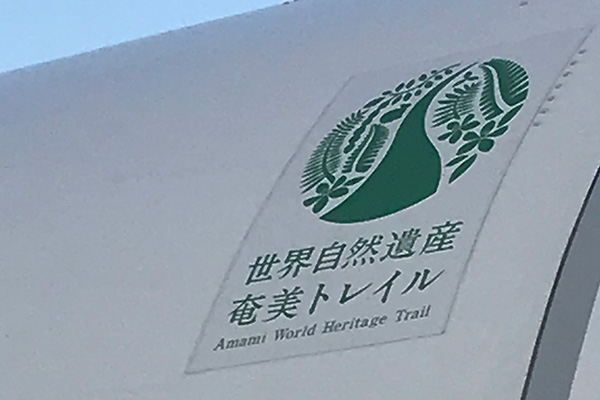Biodiversity Conservation
Basic Concept
The JAL Group recognizes that the preservation and restoration of nature is a particularly important issue for a sustainable society, as it strengthens the social infrastructure, and commits to comprehensive solutions to biodiversity and climate change.
To date, the JAL Group has actively promoted the conservation of biodiversity, including the conservation of species through the prevention of illegal wildlife trade, the preservation of ecosystems through plant quarantine, and the conservation of natural resources at World Natural Heritage sites. In addition, to address climate change, we have been working on upgrading to fuel-efficient aircrafts, the steady implementation of JAL Green Operations, and the utilization of SAF to achieve net-zero CO2 emissions by 2050, while taking into consideration the impact of CO2 reduction efforts on the ecosystem. (Disclosure of information on climate change based on the TCFD)
The JAL Group aims to build a society in which nature and people coexist in harmony through its business activities. Based on the premise of reducing our impact on nature, we will create human flows through the preservation and experience of nature, and commercial and logistics flows through foods and merchandise that are products of rich ecosystems. In this way, we will create relationships and connections through mobility, and through the realization of "Nature Positive," we will create a future in which everyone can feel affluence and hope, thereby enhancing our corporate value. To realize these goals, we will work under our "Commitment to Nature".
Commitment to Nature
The JAL Group will contribute to the conservation and restoration of nature, including biodiversity, in order to fulfill our responsibility to pass on our precious Earth to the next generation.
Our daily lives and economic activities are dependent on the benefits of nature (ecosystem services). The benefits of nature are supported by a stock of natural capital, and business models that consider the sustainability of natural capital support the sustainability of the society as a whole, including the business itself.
Recognizing the importance of such nature, the JAL Group commits to achieve no net loss of biodiversity by 2030 by identifying priority areas of biodiversity conservation and working to conserve them while monitoring progress toward the set targets. We also commit to achieve no gross deforestation by 2050 and create a net positive impact on biodiversity for a society that coexists in harmony with nature (Nature Positive).
In order to do this, together with our suppliers, customers, and other stakeholders, we hereby promise the following;
- Understand the impact of our entire value chain on nature, our dependence on nature, and the risks and opportunities of our business.
- We will respond to the negative impacts of our business on nature through avoidance, reduction, recovery, and offsetting (in the order of high priority).
- We will work together with our stakeholders for the conservation and sustainable use of biodiversity.
*Reported to and approved by the Board of Directors in August 2023
*This commitment applies to the JAL Group, suppliers and partners.
The Path to TNFD disclosure
Based on the TNFD (Taskforce on Nature-related Financial Disclosures) disclosure framework, the JAL group has been looking into the relationship between the group's business and nature (dependencies and impacts), as well as the associated risks and opportunities. We disclose information from the four perspectives recommended by TNFD: "Governance," "Strategy," "Risk and Impact Management," and "Metrics and Targets." On March 2023, we joined "The TNFD Forum," and on August 2023, we made a preliminary disclosure based on the TNFD beta framework. In order to build on the disclosure, we invited external experts from WWF Japan to conduct workshops. Then, after the final recommendations of TNFD were announced, we invited Ms. Naoko Hamashima, Director of the Biodiversity Mainstreaming Office at the Ministry of the Environment, to hold a dialogue with our executives.
Furthermore, in December 2023, we applied for the Biodiversity Business Contribution ProjectOpen link in a new window (Targets 2 and 3, Japanese Only) and issued a Nature Positive Declaration [384 KB : PDF]Open link in a new window (Japanese only), and also registered as a "TNFD Early Adopter", as the first airline in the world. Since then, we have been going through various analyses and initiatives, and in July 2024, the final disclosure content based on TNFD's recommendations was reported and approved at the Board of Directors meeting.
For details on each organization and initiative, please refer to participation in external initiatives.
Governance
The JAL Group's Board of Directors demonstrates a strong supervisory function through the periodic reporting (4times in FY2023) on the execution of initiatives concerning climate change and biodiversity.
In the execution, the Sustainability Promotion Council, chaired by the President, formulates basic policies, sets important targets and manages progress, and deliberates and decides on policies to deal with issues.
The Sustainability Promotion Committee, chaired by the Senior Vice President of the General Affairs Division, deliberates on individual issues identified through the environmental management system (EMS) and the Relationship and Connection Creation Committee which gets reported to the Sustainability Promotion Council.
In addition, the JAL Group executes a human rights due diligence process every year based on the JAL Group Human Rights Policy established in 2019.
We identify human rights issues through human rights risk surveys and dialogue with external experts, and work to resolve them.
This year, new issues on human rights related to nature, including biodiversity, was identified and added to the list of items to be addressed. Among the human rights issues, the prevention of modern-day slavery, including forced labor and human trafficking, has been approved by the Board of Directors and disclosed in compliance with the laws of the relevant countries.
As part of our efforts to protect human rights in procurement activities, we promote the protection of human rights and appropriate labor practices in our supply chain, conduct risk assessment and monitoring, and strive to procure commercial materials that are human rights-conscious.
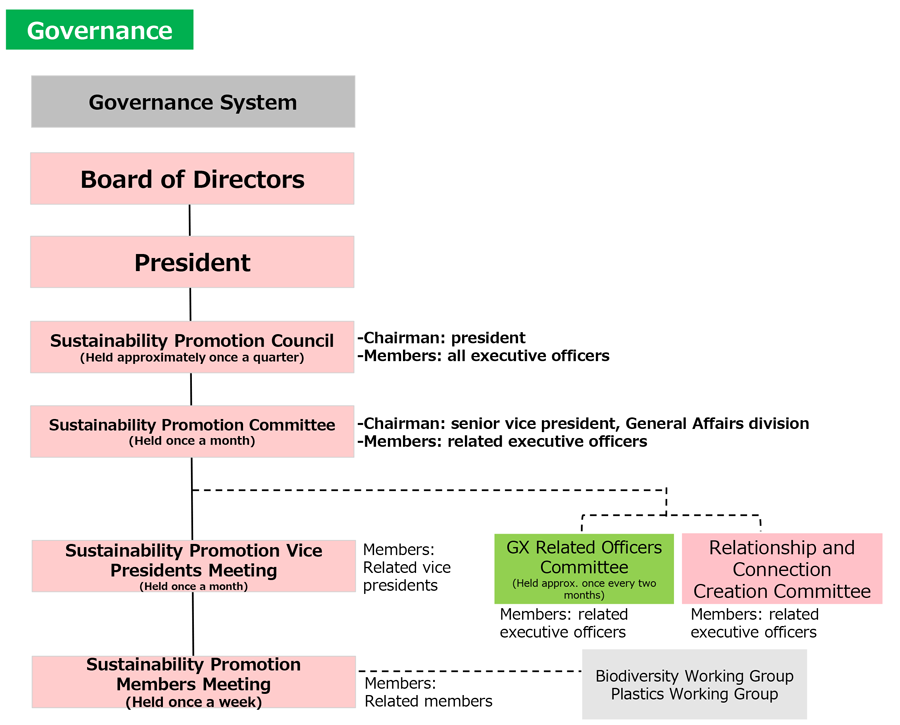
Strategy
The JAL Group follows the LEAP approach* proposed by the Task Force on Nature-related Financial Disclosure (TNFD) to systematically assess nature-related risks and opportunities based on scientific evidence, and after identifying its dependence on and impact on nature and priority areas.
* LEAP approach: "LEAP" is an acronym for the four phases of Locate, Evaluate, Assess, and Prepare. It is an information disclosure guidance that consists of "Locate," which identifies the nature interface throughout the supply chain and identifies priority locations; "Evaluate," which diagnoses the dependencies and impacts between the business activities and nature; "Assess," which evaluates the key risks and opportunities based on the results of the diagnosis; and "Prepare," which prepares a response to nature-related risks and opportunities and reports back to investors.
Nature-related Dependencies & Impacts
Nature, consisting of freshwater, ocean, land and atmosphere, provides various benefits (ecosystem services) to the JAL Group's business. For example, a stable climate maintains a suitable operating environment for aircraft (regulating services), and provides places and opportunities for tourism (cultural services), leading to the creation of human flows. In addition, blessings such as food (supply services) lead to the creation of commercial and logistics flows.
In March 2023, an internal workshop was held with a lecturer from the World Wildlife Fund Japan (WWF Japan) to explore the connection with nature as part of the analysis of dependencies and impacts on nature. Also, ENCORE was used to analyze the dependencies and impacts of the airline industry has on nature, which covers over 80 percent of the scale of the JAL Group`s revenues. The results showed that the dependence was on flights to natural heritage sites, beach resorts, and other nature-rich destinations, sales of local food products, flood and storm protection, and water use, while the impact was on potential environmental pollution around airports, GHG emissions, and concern over the impact of the SAF production process on ecosystems For SAFs and credits, which are essential for reducing CO2, we will strive to reduce biodiversity risks in the value chain by procuring those that meet strict sustainability standards based on certification systems established by public institutions.
*ENCORE: TNFD's recommended tool that can be used to assess the opportunities and risks that businesses pose to their natural capital
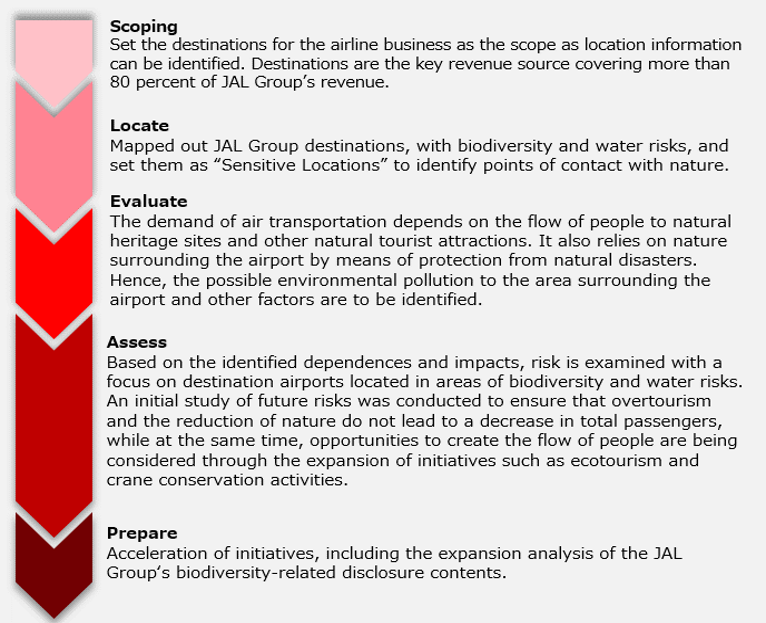
LEAP approach image
Idetifying Priority Areas
The JAL Group recognizes water as an important resource that affects climate change and biodiversity and is commits to its sustainable use.
JAL‘s water intake areas are mainly in Japan, where water stress levels are considered low based on analysis using Aqueduct* and we recognize that the risk is low. However, we have identified the Tokyo metropolitan area (Haneda and Narita), which accounts for 80 percent of our total water intake, as a priority area. We will continuously strive to conserve water resources by means of recycling water used for washing aircraft parts, etc. We also conducted an analysis on overseas areas. Although no priority areas were identified due to low water intake, we will expand our efforts in these areas in the future.
*Aqueduct: a tool provided by the World Resources Institute (WRI) to map water risks such as floods, droughts, and stress.
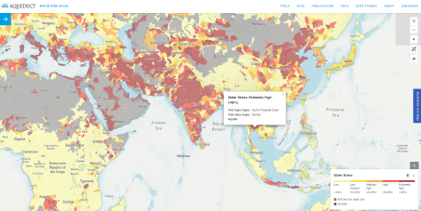
Aqueduct analysis image
In addition to water, the JAL Group identifies priority areas by focusing on biodiversity itself, including ecosystems such as forests and oceans, and the various species that inhabit them.
Priority Areas in Domestic Destinations
As a result of checking against the areas with significant biodiversity in the biodiversity risk filter provided by WWF, we recognized that many of the JAL Group's domestic destinations are in areas of high biodiversity risk. These areas identified as particularly high-risk were designated as Sensitive Locations. In addition, areas with high demand for nature tourism were designated as areas where our business depends on nature and Tokyo, where our major airport locates in, was identified as Material Locations as an area where our business has an impact on nature.
Considering these multiple factors as a whole, we identified Hokkaido, Kagoshima, Okinawa, and Tokyo as priority areas for biodiversity conservation.
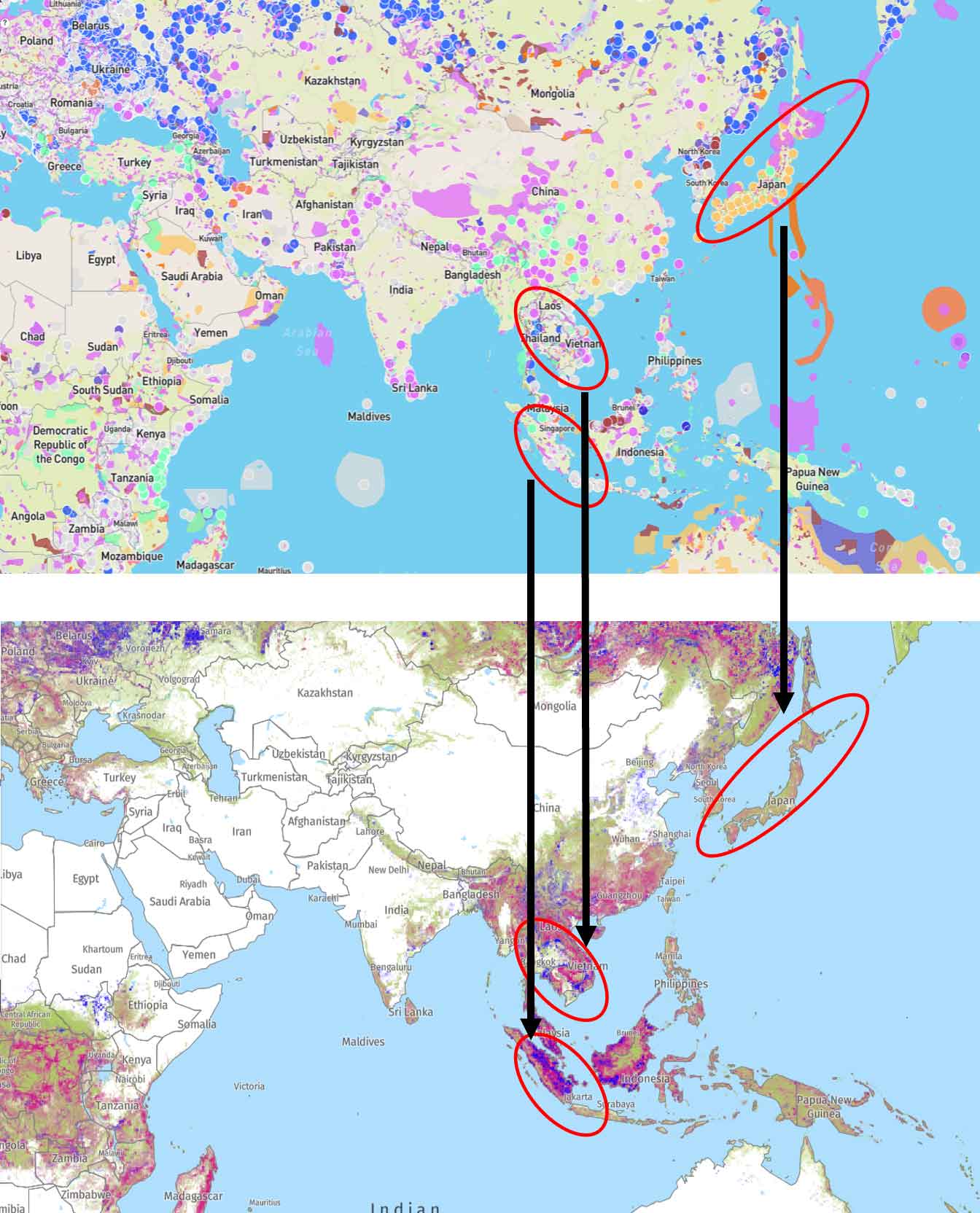
Image of the identification of the Sensitive Location by combining various tools (Top: IBAT Bottom: GFW)
Priority areas in international destinations
Using the 4 tools recommended by TNFD (Aqueduct x IBAT* x GFW* x ENCORE) as well as the Illegal Wildlife Trade (IWT) hotspots, we have identified areas with significant biodiversity and water risks as Sensitive Locations. In the future, we will also identify Material Locations related to JAL Group‘s destinations, and based on this analysis, we will identify area that are dependent on and impacted by nature as well as having a significant passenger demand at the same time as priority areas for biodiversity conservation.
*IBAT: A biodiversity assessment tool developed by BirdLife International, the World Conservation Monitoring Center (WCMC) of the United Nations Environment Programme, the International Union for Conservation of Nature (IUCN), and Conservation International.
GFW: A biodiversity assessment tool provided by the World Resources Institute (WRI).
Risks & Opportunities on the Organization's Businesses
Loss of biodiversity can be a significant risk to the sustainability of our air transportation business, and managing it can also lead to opportunities. The workshop also assessed nature-related risks and opportunities based on the identified dependencies and impacts, which are summarized in the table below. In the future, we will deepen the assessment of risks and opportunities by analyzing financial impacts as well.
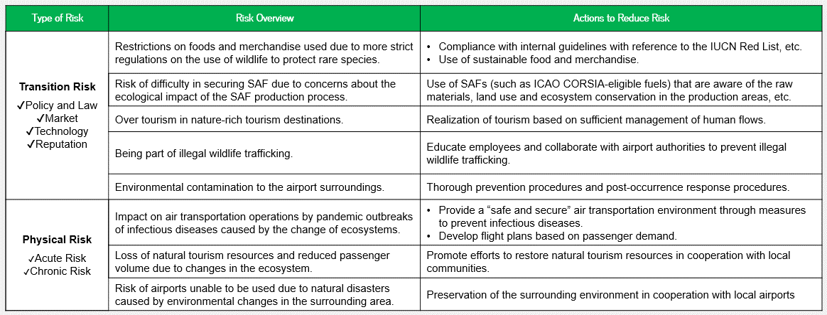

Risk Management
The JAL Group defines risk as any event or action that may impede the achievement of the organization's mission, objectives, or goals, and conducts semiannual risk surveys and assessments. Those assessed as of particular importance are positioned as priority risks, and the status of risk management is reviewed at the Group Risk Management Council chaired by the President, where countermeasures are discussed and decided.
With regards to environmental issues such as climate change and biodiversity, which are priority issues in our management strategy, we implement risk management through the PDCA cycle based on the EMS, while considering relevant laws, regulations, and policy trends in the international community.
Metrics & Targets
The JAL Group recognizes that biodiversity is affected by various environmental issues, including climate change, resources, and environmental pollution, and commits to comprehensive solutions. In addition to targets related to biodiversity conservation, we disclose environmental data such as CO2 emissions, waste and water consumption.

Core Global Disclosure Metrics
JAL Group discloses the following indicators based on the Core Global Disclosure Metrics as required by TNFD v1.0 in the ESG data. We will consider expanding the disclosure of these metrics in the future.

Biodiversity Actions
In June 2020, the JAL Group declared its goal of net zero CO2 emissions by 2050. Reducing CO2 emissions not only mitigates climate change, but also preserves ecosystems and reduces biodiversity loss. In addition to the goal of achieving net zero CO2 emissions, the JAL Group has identified key Initiatives and issues to work on towards sustainability and has also set targets for reducing food waste and resource (plastic and paper) usage. Reducing the use of paper resources and recycling will reduce deforestation. In addition, the use of internationally certified paper that takes forest resources into consideration preserves forests and protects the ecosystems that inhabit them. Forests absorb CO2, which contributes to climate change. Because of this close relationship between biodiversity and climate change, we are addressing both as important issues.
For example, we are engaged in various activities such as plant quarantine to prevent invasive alien species, prevention of illegal wildlife trade, and preservation of the World Natural Heritage.
Furthermore, JAL became a corporate member of WWF Japan in January 2020, supporting WWF's environmental conservation activities and promoting biodiversity conservation activities through its business activities.
Stop Illegal Wildlife Trade
In June 2018, the JAL Group signed the Buckingham Palace Declaration by the United Wildlife Transport Taskforce to reduce illegal wildlife trade promoted by the International Air Transport Association (IATA). Illegal wildlife trade is one of the crimes on a global scale, following drugs and human traffic, where the trade amounts to several trillion yen. JAL Group has helped to protect endangered or rare species. For example, Ishigaki Airport staff found and prevented coconut crabs, an endangered species, from being taken outside the island, and Amami Airport staff noticed that rare frogs and snakes were about to be taken outside the island.
Furthermore, to fulfill our duty as an air transport operator, in February 2020 and March 2021 we invited a speaker from the World Wide Fund Japan (WWF Japan) to hold a workshop to deepen our understanding and extend our education on preventing illegal wildlife trade. During the workshop we studied about the current situation of illegal wildlife trade and what to do when we discover live animals.
In December 2021, the JAL Group joined a symposium organized by WWF Japan and TRAFFIC on the theme of raising awareness of issues and promoting efforts to prevent illegal wildlife trade. JAL Group staff members spoke at this symposium and introduced the JAL Group's proactive efforts in cooperation with ministries and local communities, including participation in the "Liaison Conference on Countermeasures against Poaching and Smuggling of Rare Wild Fauna and Flora" in the Okinawa and Amami Islands regions, and training sessions on countermeasures against poaching and smuggling at airports.
Going forward, JAL Group will continue to organize educational sessions for our employees and will strengthen our activities by cooperating with other related parties to share information and to eradicate illegal wildlife trade.
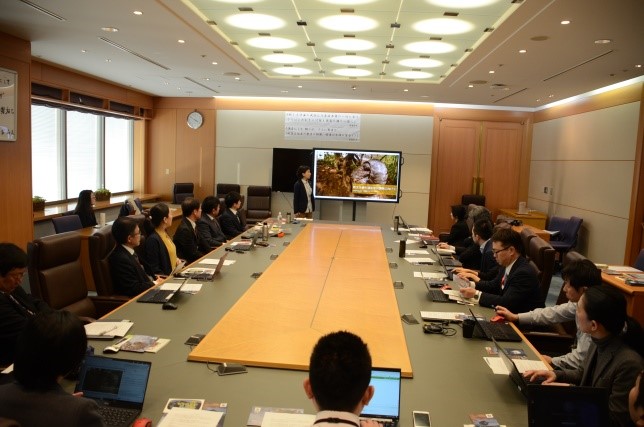
Official Sponsor of International Year of Plant Health 2020
The United Nations General Assembly declared 2020 as the International Year of Plant Health (IYPH) to raise global awareness on the importance on how to protect plants from the spread of pests and diseases. JAL Group is spreading the word in and outside the company about the importance of plant protection as the Official Sponsor of International Year of Plant Health 2020 certified by the Ministry of Agriculture, Forestry and Fisheries (MAFF).
Eighty percent of the world food supply originates from plants with a food loss of 20 percent to 40 percent from plant pests. Enormous costs incur to eradicate the pests. For example, 20.4 billion yen was used over roughly 20 years to exterminate melon flies, which inflicted considerable damage to crops.
There is growing concern on the importance of plant protection with the increase of in-bound tourists. No only is it a must to take care when taking plants in and out of Japan but there are also regulations in transporting plants within Japan. For example, it is prohibited to take sweet potatoes and other plants from the Nansei Islands, namely the Amami archipelago in Okinawa and Kagoshima Prefectures, and Ogasawara Islands.
In February 2020, JAL invited a speaker from MAFF to an in-house talk event to address the damages by plant pests, plant protection, and its relationships with the aviation industry. Feedback from one of the participants was about her understanding of how important it was not only to protect humans, meat but also plants and how she would like to spread the word within the company going forward. It is critically important to stop the invasion and outbreak of pests because enormous costs incur to eradicate the bugs. Going forward, JAL Group will cooperate with related parties to communicate the importance of plant protection.
For more details on plant protection, please refer to the MAFFOpen link in a new window website(Jananese only).
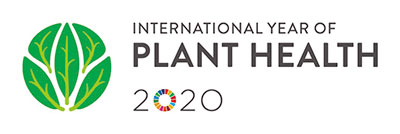
UNESCO World Natural Heritage Sites
Several million years ago, the Amami archipelago, namely Amami-Oshima Island, Tokunoshima Island, Iriomote Island and the northern part of Okinawa Island, drifted from the continent resulting in a rich repository of rare species such as the Amami rabbits and Iriomote cats. A movement is emerging to register and conserve the biodiversity and rich nature as a world natural heritage site. JAL Group is actively involved in this movement to register these islands by the summer of 2020.
Japan Transocean Air (JTA), Ryukyu Air Commuter (RAC), with hubs in Okinawa, and Japan Air Commuter (JAC) with a hub in Kagoshima, are in engaged in explaining and protecting the natural environment together with the region by holding in-house study groups, participating in liaison meetings on poaching and smuggling animals, erecting road signs to prevent roadkill of endangered species, establishing and promoting the Amami Trail that explores the Amami archipelago, to name a few.
In 2019 they initiated a joint venture to promote world heritage sites in Okinawa and a community to promote world heritage sites in Kagoshima by engaging local communities. All participating organizations are making good use of their strengths to protect and promote the local natural environment.
Conserving Red-Crowned Cranes
The symbol on the tail of JAL Group airplanes is based on the red-crowned crane, a protected species of Japan. The red-crowned crane is a symbol of the beauty of Japan, but it is also endangered and designated as a rare wild animal species in Japan.
Every year since 2016, JAL Group employees have volunteered to clean and maintain the red-crowned crane's feeding grounds in Tsurui Village, Hokkaido.
JAL Photography Contest of Red-Crowned Cranes
A JAL photography contest of red-crowned cranes, a special natural treasure of Japan and a symbol of "Japanese Beauty" , is held for everyone to express their thoughts towards the importance of biodiversity and their desire to continue protecting the beautiful nature through photographs accompanied by heartwarming messages.
Coral restoration project by enhancing sexual reproduction
One of the attractions of Okinawa is its blue ocean and coral reefs full of life. Coral reefs play various roles, such as conservation of national land and disaster prevention through the wave dissipating effect, because they are places for the coexistence and production of a wide variety of organisms, in addition to the scenic function enjoyed as tourist resources. However, recently, the deterioration of coral reefs along the coast of Okinawa Prefecture has progressed rapidly due to the bleaching phenomenon caused by the rise of sea surface temperature and the predation of corals caused by the outbreak of coral-eating starfishes.
In April 2020, Japan Transocean Air (JTA) established the "Sexual Reproduction and Coral Restoration Support Council " together with Fisheries Infrastructure Development Center. The Council is an organization that supports coral restoration activities through enhancing their sexual reproduction. In addition to financial support, JTA has been involved in recruiting support companies and supporting the creation of public relations magazines. This time, we are planning to support the Yaeyama Fisheries Cooperative Association in Ishigaki City, Okinawa Prefecture for six years, and we are studying a system for self-propelled coral regeneration activities in Yaeyama. The goal is to grow 1,000 seedlings by 2026.
Although the corals look like "stones", they are colleagues of jellyfishes and sea anemones and spawn eggs once a year. The Sexual Reproduction Method means mass production of coral seedlings using artificially collected coral larvae. This method was developed and established by the Fisheries Agency, allowing massive coral seedlings without land facilities. The Yaeyama Fisheries Cooperative is put this method into practice under the technical guidance of the Council.
Restoration of coral reefs has a sustainable effect on the marine industry, which is a key industry in Okinawa Prefecture, as it provides fisheries grounds and nurseries for a variety of fish, in addition to the tourist industry including scuba diving and other marine activities.
Together with the 6 companies in Okinawa that supported the council's activities, we will continue our efforts to hand over the rich natural resources of Okinawa to next generation.
For more details on JTA's activities, please refer to the WebsiteOpen link in a new window(Japanese only).
Archives
JAL×MISIA
To communicate the importance of biodiversity, JAL is committed to cooperate in activities for the United Nations Decade on Biodiversity declared in 2011. Misia, a Japanese pop diva, reaches out on the importance of protecting biodiversity and linking it to the future through her music and various activities.

